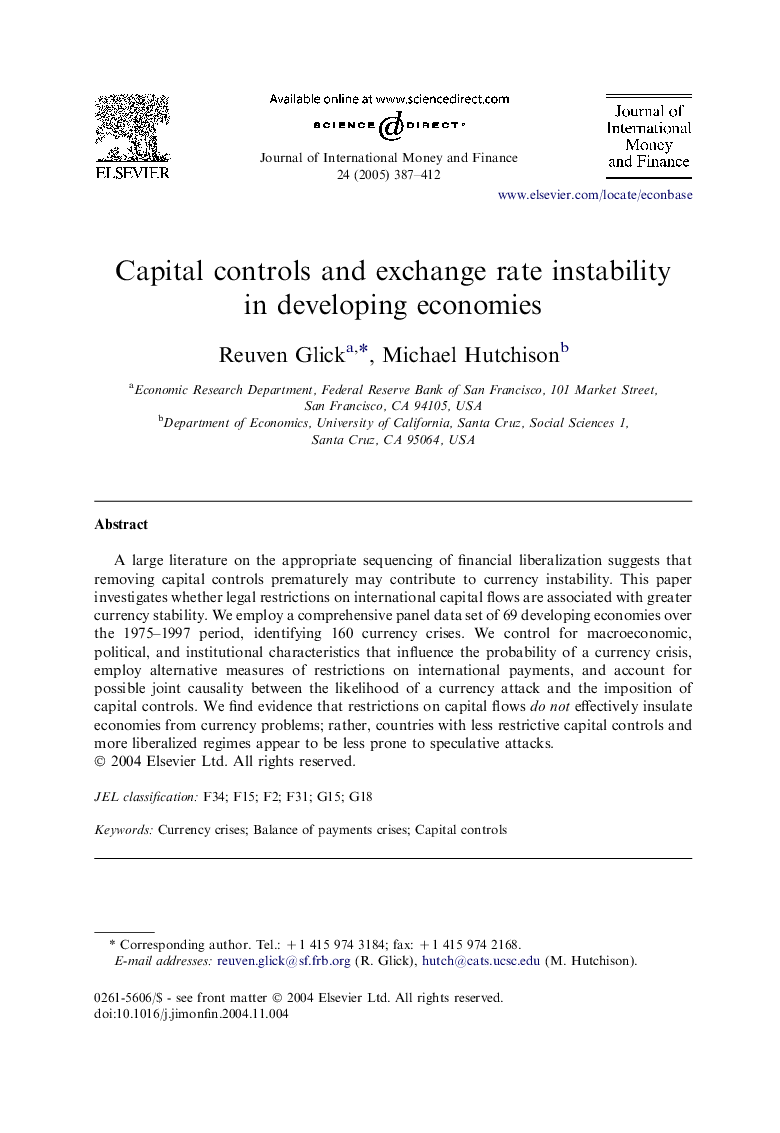| Article ID | Journal | Published Year | Pages | File Type |
|---|---|---|---|---|
| 10477561 | Journal of International Money and Finance | 2005 | 26 Pages |
Abstract
A large literature on the appropriate sequencing of financial liberalization suggests that removing capital controls prematurely may contribute to currency instability. This paper investigates whether legal restrictions on international capital flows are associated with greater currency stability. We employ a comprehensive panel data set of 69 developing economies over the 1975-1997 period, identifying 160 currency crises. We control for macroeconomic, political, and institutional characteristics that influence the probability of a currency crisis, employ alternative measures of restrictions on international payments, and account for possible joint causality between the likelihood of a currency attack and the imposition of capital controls. We find evidence that restrictions on capital flows do not effectively insulate economies from currency problems; rather, countries with less restrictive capital controls and more liberalized regimes appear to be less prone to speculative attacks.
Related Topics
Social Sciences and Humanities
Economics, Econometrics and Finance
Economics and Econometrics
Authors
Reuven Glick, Michael Hutchison,
